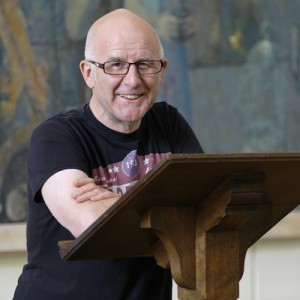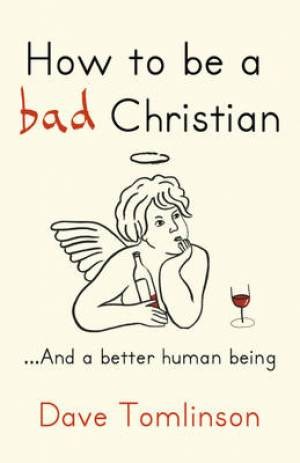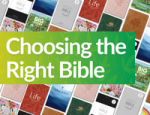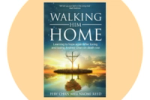How To Be A Bad Christian
Lynn Williamson
Dave Tomlinson is no stranger to controversy. The author of The Post Evangelical was recently described as a “liberal evangelist”. It’s a title the vicar of St Luke’s is comfortable with. Even so, his answer to my first question is surprising.

Is it possible to follow Jesus and not realise it?
I think so. One of the stumbling blocks in my mind and it’s embedded into our consciousness is innies and outies – people who are on this side of the line are Christians and people over there are out. If we look at Jesus it was more simple. He called people to follow him. He didn’t ask them to sign up to a doctrinal statement or agree to principles.
But some people chose to follow Jesus while others rejected him, didn't they?
Yes and that’s true today. But what I’m saying is it’s about people following the way of Jesus. Christians originally were called people of the way. I like that idea because is suggests process rather than destination. There are people who follow the way that Jesus embodied and passionately portray God’s love in the way who don’t even know about Jesus or haven’t had an encounter that’s made them think about him.
If you believe that God’s spirit is at work in the world then people can be on a journey without necessarily having the words or concepts or being part of the Christian club.
What is your new book How To Be A Bad Christian about?
The title and the very phrase ‘bad Christian’ is something of a tongue in cheek way of expressing something more profound. What I’m exploring is what is Christianity like when we strip it of all that paraphernalia and say ‘when you really come down to the root core of it what is it about?’ I’m saying it’s about following the way Jesus showed us and exemplified.
Take someone like Kay who is one of my parishoners. She never appears in church. She’s a single mother on benefits living in social housing. Her house is constantly full of local waifs and strafes. She feeds them and is a big mother figure to all kinds of people. There’s lots of people like Kay who are Jesus figures in their own way. To me they are following the way of Jesus without necessarily thinking of it in those terms.
My model for this is Jesus himself who didn’t as far as I can see ever ask people to sign up to a theology or doctrine. He called people to follow him. You take someone like the rich young ruler who said what must I do to have eternal life. We all know the standard answer any good sound evangelical would give to that but Jesus said keep the commandments. He never got round to getting him to pray the sinners prayer.
Have you ever prayed the Sinner's Prayer [definition] with anyone?
I have done that in the past. The problem with the Sinner's Prayer approach is it focuses everything on everyone making a crucial decision that moves them from outside to inside or no faith to faith.
It’s a deceptive thing because the truth is our lives are made up of a whole series of decisions and I think that lots of us who have gone through that model have found we’ve had all kinds of doubts and questions for years and years. It’s not like you suddenly go from unbelief to faith, it’s more of a journey.
Likewise there are people who have never prayed a specific prayer but have let Jesus into their life in practice. For me it’s just too crude a system.
What else do you think is wrong with typical evangelism today?
A lot of so called evangelism is so pre packaged. It’s like buying a wardrobe from IKEA; you get the same thing in the same box. People need to be treated as individuals. The book is about moving away from the flat pack approach to Christianity toward something more open and creative. It’s dealing with people and situations in a more open and sensitive way, rather than putting pieces together in a set formula.

Have you written the book for Christians or non Christians?
If people in the church look at the book and go 'tut tut it’s not very sound' my response is 'this isn’t for you'. I’ve written it for people who are never going to come. Somebody described me at Greenbelt this year as a liberal evangelist and I can sit comfortably with that.
Some people may be surprised to learn that despite your criticisms of church culture, you’re an ordained minister in the Church of England. Do you fit comfortably within it?
I was a house church leader for many years and I’ve gone through a journey of various aspects of the church and all along the way had various frustrations and questions. I had a conversation with the Bishop of London in the mid 90s, about whether my home was in the Church of England - which seemed like a crazy thought given my history. At that point I was running Holy Joes Church in a pub.
He said to me ‘Dave you’re going to find the Church of England very frustrating and you’ll be critical of many things in the Church but the Church will benefit from your criticism’ - which was a very generous thing to say. You know what? He’s right. I have found the Church of England frustrating in many ways but I have found a home here.
Is there anything you do that's very different to other CofE churches?
I think we’re a good example of what the Church of England can be at it’s best, which is a place with doors wide open that say we are a church of this community. We’re here to serve you and be with you and be for you whatever you need. This is all part of the background of where this book is coming from. I look at the parish as being a community of Bad Christians. There are lots and lots of people who are doing amazing things, ordinary kind of acts of love.
The beauty of the Church of England is the way the parish system has been historically established; the church for all people. I don’t expect them all to come next Sunday, they probably never will but that doesn’t mean I don’t include them in as being people I view as parishoners, part of my flock and people I want to serve. I often tell the people who do come on Sunday that the other 12,000 people who surround us are our bigger family.
What's the best Christian book you've ever read?
Oh dear, best book, very difficult, I read masses of books and love so many. I love the writings of Frederick Buechner - all of them. Sara Miles' Take This Bread is one of the most enjoyable reads I have had - the story of her conversion through taking communion in St Gregory's in San Francisco.
What has God been teaching you recently?
That the greatest sin is a life not lived...live every second of your existence. I'm haunted, in a positive way, by the words from a Mary Oliver poem: 'I don't want to end up simply having visited this world.'
Latest Blogs

Bible
Choosing The Right Bible
With more than 20 English Language translations each available in 25 or more different editions the choice of Bibles excites and bewilders. Choosing the right Bible for you is important - even if you already have more than one.

Spiritual Growth
LENT COURSES - How to choose the right one for you
Long overshadowed by the celebrations of Easter Sunday, Lent is being rediscovered as a sacred time of reflection and renewal in its own right and a time of preparation for the joyous seasonal finale.

Featured
Stocking Fillers
Here’s our pick of the top 3 Stocking Fillers this Christmas. You can find even more at our Christmas Store.

News
Where to Watch the New C.S. Lewis Film
Heading to a screen near you soon, The Most Reluctant Convert is a feature-length movie about the life and faith of one of England’s greatest Christian writers and thinkers: C.S. Lewis.

News
Advent Study Guide Review 2021
Go deeper with this year's brilliant Advent Bible Study Guides.

Interview
Author Interview with Feby Chan and Naomi Reed
Feby tells her compelling story in her book Walking Him Home. After wrestling with grief and suffering, she shares how God’s healing and faithfulness is enabling her to step into her new life and ministry.
